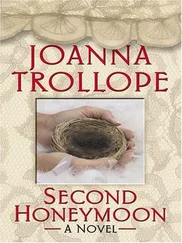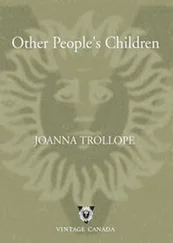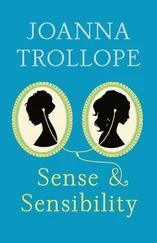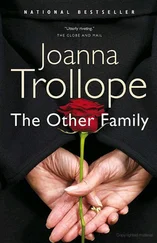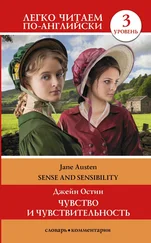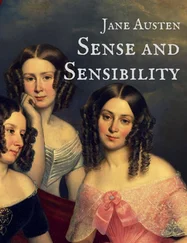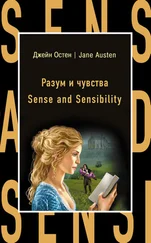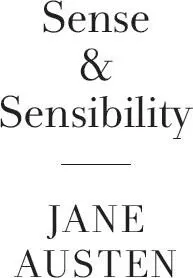

Contents
Title Page
An Introduction by Joanna Trollope
Volume I
Chapter 1
Chapter 2
Chapter 3
Chapter 4
Chapter 5
Chapter 6
Chapter 7
Chapter 8
Chapter 9
Chapter 10
Chapter 11
Chapter 12
Chapter 13
Chapter 14
Chapter 15
Chapter 16
Chapter 17
Chapter 18
Chapter 19
Chapter 20
Chapter 21
Chapter 22
Volume II
Chapter 23
Chapter 24
Chapter 25
Chapter 26
Chapter 27
Chapter 28
Chapter 29
Chapter 30
Chapter 31
Chapter 32
Chapter 33
Chapter 34
Chapter 35
Chapter 36
Volume III
Chapter 37
Chapter 38
Chapter 39
Chapter 40
Chapter 41
Chapter 42
Chapter 43
Chapter 44
Chapter 45
Chapter 46
Chapter 47
Chapter 48
Chapter 49
Chapter 50
Read on for Chapters 1 and 2 of Joanna Trollope’s modern re-telling of Sense & Sensibility
About the Author
Also by Jane Austen
Copyright
About the Publisher
Sense & Sensibility is a very significant novel in the small but perfectly formed Jane Austen canon. It was, after all, her first full length novel and she had had it by her for no less than sixteen years by the time it finally made it into print.
She started it before she was twenty. It was an epistolary novel at that stage, entitled ‘Elinor and Marianne’, and it might even have been written on the writing box which her father noted buying in Basingstoke ten days before her nineteenth birthday in 1794, and which is now in the British Museum. But even then, in that early form, it was about – or at least half about – the eighteenth and early nineteenth-century pre-occupation with sensibility, that fashion for complete surrender to emotion, and to adoration of everything to do with the natural world.
Sensibility was, after all, the philosophical vogue right across Europe when Jane Austen was growing up – think of Goethe, or the early writings of Jean-Jacques Rousseau – but by the time she came to revise the novel a decade and a half after she had first read her outline of the story to her family, her view of the extremes of susceptibility to feeling and nature had been increasingly tempered by her appreciation of reason and restraint. To add to this prolonged creative start to her literary career, there also seems to have been a difficulty in persuading any publisher to take the completed novel on, to such an extent that when it did finally appear, in 1811, the publisher was one Thomas Egerton of the incongruously named Military Library in Whitehall, who stated firmly on the title page that the novel was ‘Printed for the Author’. It is thought that the publication cost her about £150, and that sales restored all but £10 of that sum to her. But the significant fact was, actually, in those sales. That first edition of 750 copies, in three volumes, sold right out.
The essence of the narrative is, like all her books, in the title. It concerns two sisters, Elinor and Marianne Dashwood, both good looking, although Jane Austen makes it plain: Marianne actually falls into the stunner category. They are accomplished, gently born, and uncomfortably poor, rather than glamorously penniless. When the book opens they have just lost their father, and are left with a sweet but slightly ditzy mother, a schoolroom-age sister, no home and no prospects. It is the early nineteenth century, so given their social status, marriage is the only career open to them, as well as being the only likelihood for subsistence. The novel charts how their approach to their future, and thus to men, is conditioned by each girl’s governing characteristic – sense for Elinor and sensibility for Marianne. It is an imperative, if they and their mother and sister are not to starve, for their heads to govern their choice of husband. But Marianne is only interested in heart: for her, reason and prudence represent a betrayal of soul and spirit. She is not, in her convictions, any distance at all from the modern belief in entitlement to complete emotional fulfilment.
This is only one element that makes this an extraordinarily modern book. Or perhaps it’s more accurate to describe it as timeless. The sisters themselves, their mildly and maddeningly impulsive mother, the generous and cheerfully obtuse distant cousin who offers them a roof, are all characters who translate immediately into the twenty-first century. As do the principal men, those crucial and possible husbands who range from the decent, patient suitor (Colonel Brandon), through the appealing but depressive misfit, (Edward Ferrars) to the distractingly handsome, unreliable, emotional pirate (John Willoughby). Add the social climbing, trend-fixated Steele sisters, the party goose (Charlotte Palmer) and the ferociously money driven sister-in-law (Fanny Dashwood) and you have a completely contemporary cast list.
You also have Jane Austen’s sharply observant eye for the nuances of class. The time and the society in which she lived was particularly ruthless in its demarcation between cradle gentility and the eager aspirations of those whose birth had not been quite so blue bloodedly fortunate. The Dashwoods may be short of money, but they are confidently rich in breeding. Willoughby, Colonel Brandon, and Sir John Middleton are all equally secure socially, but almost everyone else in the cast list doesn’t quite make their fearless grade, and Jane Austen has finely tuned fun with all of them – the Jennings family, the Steele sisters, and even, with the exception of Edward, the Ferrars clan. Vulgarity, and those who have absurd respect for class, is the target of her wit and mockery, to wonderful and familiar effect.
But running throughout the novel there is, also powerfully present, a steely preoccupation with money. Having money in 1811 wasn’t so much a luxury as a necessity, since not having enough to keep body and soul together didn’t result in mere poverty, it resulted in the horrors of destitution. While keenly understanding what real penury could mean, Jane Austen was also never under any illusion about the sex appeal granted by money, which was as compelling then as it is today. A man could be, was, and is forgiven a very great deal if he has enough money. Money was and is power. Without it, as Willoughby’s contemptible choices demonstrate, there is neither status nor choice. And not having money clashes absolutely and dramatically with Marianne’s conviction that heart is all that matters.
Marianne is, as a fictional character, a considerable achievement. Her fervent embracing of the Romantic creed could easily have made her too exasperating to sympathise with, just as Elinor’s persistent level-headedness could have been equally alienating in the opposite direction. But Marianne’s charm and true warmth of heart, and Elinor’s dry wit as well as occasional glimpses of her real emotional suffering, not only give both girls life, but also as much life today as when they were first created, over two hundred years ago. Take away the bonnets and the muslins, strip some of the formality from the dialogue, re-locate the action to modest modern houses, and Sense & Sensibility is, without question, a tale for our times.
Joanna Trollope
Читать дальше
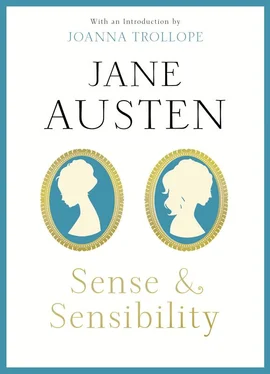


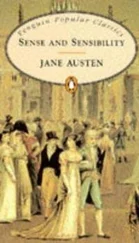
![Джейн Остин - Sense and Sensibility [С англо-русским словарем]](/books/26612/dzhejn-ostin-sense-and-sensibility-s-anglo-thumb.webp)

